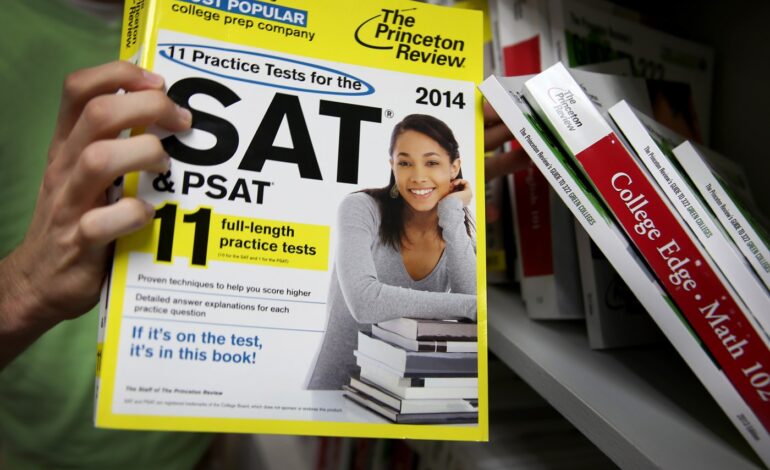College Board Eases SAT Standards, Raising Concerns About Education

The College Board has announced significant changes to the SAT, aiming to adapt the test to student preferences but raising concerns about educational standards. As colleges and universities increasingly adopt test-optional policies, the SAT’s new format introduces easier questions and a more lenient approach to reading comprehension, potentially undermining its value as a measure of college readiness.
Changes to the SAT Format
Traditionally viewed as a key indicator of a student’s preparedness for higher education, the SAT has undergone shifts in response to the pandemic’s impact on standardized testing. With more than 80% of colleges currently opting out of requiring standardized tests, the College Board is focused on making the SAT more appealing to students.
In a bid to attract test-takers, the revised SAT format now permits calculators for the entire math section and significantly reduces the complexity of reading passages. Previously, students encountered passages ranging from 500 to 750 words, but this has been trimmed to excerpts of only 25 to 150 words, a length comparable to social media posts. Each excerpt is followed by a single question, shifting the focus from comprehensive reading to quick comprehension.
Impact on Educational Standards
The College Board argues that the new format maintains rigor while responding to a preference for brevity among students. However, the change reflects troubling trends in American education. Data indicates that only about a third of high school seniors are proficient in reading, and a staggering 26% admit to not reading novels outside of school.
Many students enter college with insufficient reading skills, with reports suggesting that they are “functionally illiterate,” unable to engage with complex texts. This phenomenon is exacerbated by universities lowering academic standards in response to student feedback, resulting in inflated grades across institutions. For instance, 80% of grades awarded to undergraduates at Yale University in 2023 were either an A or A-, while the average GPA at Harvard University hovers around 3.8.
As the SAT evolves, it becomes essential to address these declining educational standards. The College Board should consider re-emphasizing the importance of deep reading, which is vital for critical thinking and overall learning. Collaborative efforts to integrate college preparatory courses into school curricula could help build reading stamina and skills necessary for tackling more demanding texts.
Moreover, reducing costs for subject-specific Advanced Placement exams, currently priced at $99, could facilitate a more comprehensive educational approach, aligning better with the SAT fee of $68.
Schools must also recommit to teaching complete works, as only 17% of teachers in grades three through eight primarily use whole texts, with a quarter relying on excerpts. University administrators should support rigorous academic standards and resist pressures to lower expectations to appease students.
Ultimately, simplifying the SAT may provide immediate benefits, but it risks compromising the academic integrity of American education. A focus on maintaining rigorous standards will better serve students and prepare them for the challenges of higher education.






